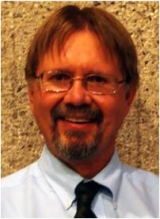Those of us who advocate the steady state economy get a lot of flak from a lot of folks: Wall Streeters, politicians, and neoclassical economists to name some of the prominent groups. In fact, these three groups make up the “iron triangle” surrounding the economic policy table. Wall Streeters are driven to maximize profits in the short term, politicians think they can’t get elected without clamoring for growth, and neoclassical economists don’t have enough expertise in the natural sciences to recognize limits to growth. Worse yet, economists are indoctrinated in programs infused with Wall Street money. How do you think that’s going to affect their curriculum?
Many are the books and articles that have described the corruption of economics. Consider such telling titles as Confessions of an Economic Hit Man, The Death of Economics, and The Corruption of Economics. The corruption of economics causes various theoretical weaknesses and policy prescriptions, including an obsession with economic growth as the solution to all problems. It doesn’t take a conspiracy theorist to recognize the pressures and biases that lead economists, corporateers and politicians to growthmanship.
What would surprise many Daly News readers, though, are some of the other categories of folks shying away from advocating the steady state economy. Such groups include many environmental organizations, professional ecological societies, and perhaps most surprisingly of all, various groups that already emphasize limits to growth! Some of these groups don’t even identify an alternative at all, except with vague reference to a “new” economy.
Can you imagine a coalition called the “Different Economy Coalition?” Or a brand of economics called “not-the-same economics?” Sounds silly you say? Yet here we are, with “new economy” groups popping up as if “new” will somehow communicate more than “different” or “not the same.”
But there is another group that warrants special attention. This is a group that has neither denied the need for a steady state economy nor been particularly prominent in advocating one. One admirable feature of the group, though, is that it clearly identifies an alternative to economic growth in its very title. I’m talking about the “degrowth” movement. In Europe degrowthers roll under the banner of “La Decroissance.”
Degrowthers should be natural allies of steady state economics. The idea is that in some countries, especially wealthy crowded ones, some degrowth is necessary before an economy of optimal size can be maintained. Failing to recognize the steady state economy as the light at the end of the tunnel will relegate the degrowth movement to a suicide mission with the political feasibility of a Tiny Tim presidency. After all, perpetual degrowth is no more sustainable than perpetual growth. For most people, the ugliness of too much growth has little to do with climate change or endangered species, but rather the degrowth that must eventually come. There’s just no political upside — and therefore no practicality — to touting degrowth unless a greater goal is embraced from the get-go.
Not that all degrowthers fail to recognize the steady state economy as the long-run goal. Far from it. Among the long list of CASSE signatories are many known degrowth principals and activists, and numerous CASSE volunteers have been recruited straight from degrowth conferences in Paris, Barcelona, and Vancouver. Such conferences are excellent venues for developing the collaboration that flows naturally from the meeting of minds; that is, degrowth and steady state minds.
But just because collaboration is natural doesn’t mean it’s automatic. Keeping the alliance vigorous and productive takes a periodic stimulant. Stimulants might include collaborative symposia at degrowth and steady state conferences, special journal sections on degrowth and steady state economics, books of course, and other typical tools of orchestrated collaboration and mutual advocacy.
I offer this week’s Daly News as a modest stimulant for the degrowth circulatory system. I want to thank degrowthers for their important work, remind them of our natural alliance, and encourage them to punctuate their degrowthmanship with regular and frequent reference to the steady state economy as the long-run goal. This reaching out applies especially to those who are new to the degrowth movement and, therefore, may not have even heard the phrase “steady state economy.” It’s the influx of new degrowth blood that calls for periodic stimulants to keep the alliance running strong.
Vice versa, too; new steady staters should be quickly apprised of the important and admirable work of degrowthers. There can be no doubt that degrowth will be needed, in many places at many times, for right-sizing the steady state. Viva la décroissance!
This call for unity ironically reminds me that I’ve been called a polarizing figure a time or two or hundred. While it used to irk me, I now take it as an unintended compliment. The idea isn’t to polarize for the sake of polarizing, of course, but rather to distinguish for the sake of reform. The only way to establish the need for steady state economics is to clearly distinguish it from the fallacies of conventional growth economics. If you do so long and effectively enough, you’ll be perceived as a polarizer. Presidents galore have been called likewise.
Meanwhile, those who fear the label of polarizer will strain themselves to avoid plain language on the need for a steady state economy. They’ll talk of “new” economics and the “green economy” and “sustainable growth.” Unless you get way into the weeds of their papers and talks (and how many will bother with that?), you’ll never know if they’re advocating something other than the latest flavor of economic growth. “New” economists won’t polarize, but the people will never know which pole they occupy, either.
Thankfully, degrowthers know which pole is north, and they’re not afraid to occupy it. We steady staters are right there with them.






